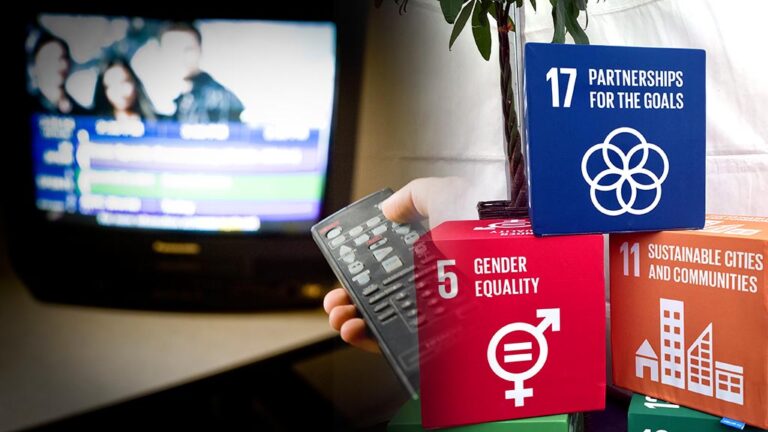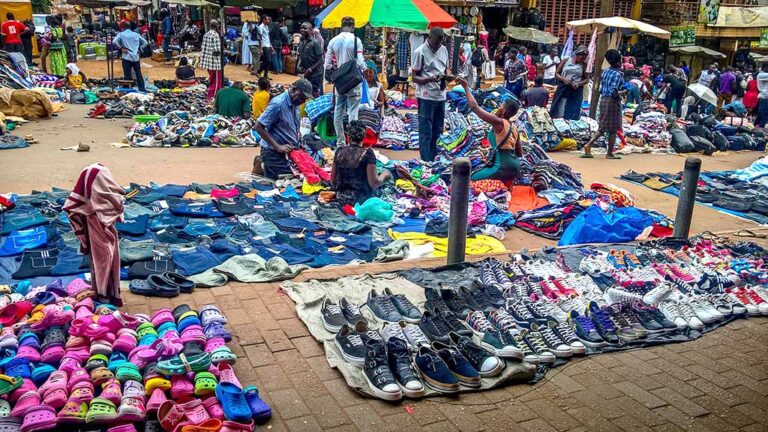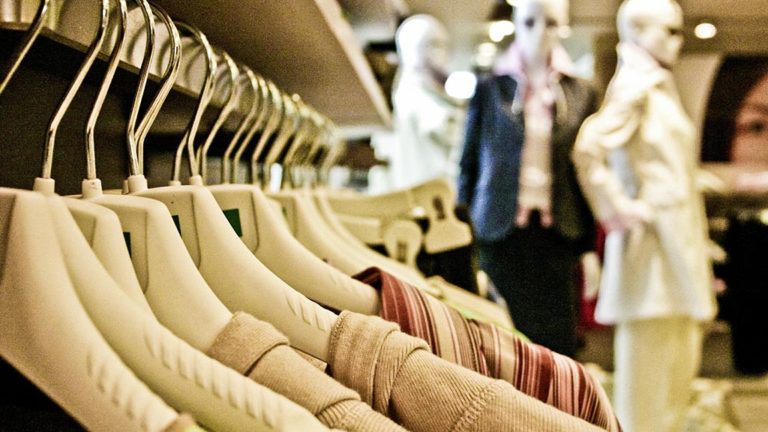
Many companies are on site in Almedalen to discuss sustainable development. The question is whether and how companies go from word to deed. Photo: Sofia Brännström / FUF
Of: Sofia Brännstrom
At the same time as the companies invite to talk about sustainability in Almedalen, climate experts believe that the business community must act faster. FUF's Sofia Brännström has listened to different perspectives on what is actually required for sustainability and action on the companies' agenda.
July 3, 2019, Report

Collaborations between companies and aid actors are an important part of the global goals for sustainable development. The Somali company Horyaal cable TV collaborates with the Swedish organization Forum Syd.
Of: Erica Fahlström
Partnerships between companies and aid actors are a prerequisite for achieving the global goals. But how should poverty reduction, peace and climate issues be part of for-profit companies? Wilo Abdulle, who is participating in Almedalen Week this year, talks about how her company Horyaal cable TV works with the global goals in Somalia.
July 2, 2019, Report

At the clothing market in Uganda's capital Kampala, many families get their livelihood from the sale of used clothes, the debater writes. Photo: Kayaga Andrew
Of: Annie Sturinge (f. Sturesson)
Making our clothes is often a dirty and resource-intensive process. It is therefore welcome that there is now more and more talk about reusing and recycling clothes. But unfortunately, several challenges remain - recycling clothes is so far inefficient and a large proportion of clothes are thrown away or become rags in India or Pakistan, writes Annie Sturinge.
February 11, 2019, Debate

When the read day Black Friday struck, it created an echo on the debate pages.
Of: Kerstin Edquist
Black Friday, this year's Christmas present and upcoming climate summit. The last week's debate has largely been about how our consumption affects the planet. No sale can comfort us when the climate collapses, wrote a debater.
November 28, 2018, Current debate

In many places in the world, people are forced to move from their homes due to mining.
Of: Max Andersson
Global companies need to take responsibility for human rights violations, even when committed by their subcontractors. Now it is time for Sweden and the EU to stop slowing down negotiations in the UN on a binding agreement against global predation, writes EU parliamentarian Max Andersson (MP).
October 15, 2018, Debate

Photo: Kremlin.ru, WikimediaCommons
Of: Alice Blondel
Today is the Swedish premiere of the World Cup in Russia. Several organizations have sounded the alarm that human rights have been violated during the preparations for the championship. Companies that sponsor Sweden's participation have a responsibility to try to prevent such violations, but a new report from Swedwatch shows a gap between policy and practice. It is time for the sponsors to go from word to deed, writes Swedwatch's Chancellor Alice Blondel.
June 18, 2018, Debate
Of: Daniel Rosell
Should Sweden really cut ties completely with dictatorships or try to influence them in a democratic direction? Even in a dictatorship like Azerbaijan, Swedish corporate collaborations can be a good way to open up to dialogue and then a seed for change, writes political scientist Daniel Rosell in a response to a debate article in Göteborgs-Posten.
December 15, 2017, Debate
Of: Ulrika Modéer
Business collaboration in development assistance is about taking advantage of the knowledge, experience and resources that the business community has at its disposal and to catalyze more, better and faster change. Penny Davies, Diakonia, is concerned that important principles for aid effectiveness will be thwarted when the OCED DAC now reviews which private sector instruments should be counted as aid. Sweden is working with full force to prevent this from happening, writes State Secretary Ulrika Modéer.
April 3, 2017, Debate
Of: Penny Davies
Discussions are currently underway within the OECD's Development Assistance Committee DAC on what can be counted as development assistance. Today, 9 March, the Committee will take a position on new types of instruments aimed at increasing private sector participation in development assistance. This reform can have very major consequences for development aid and therefore requires in-depth discussion. Otherwise, there is a risk that the reform thumbs up on important principles for aid effectiveness, writes Penny Davies, policy adviser in development financing at Diakonia.
March 9, 2017, Debate
Of: Ann Catherine Carlsson, Magdalena Hansen, Maria Lövström, Mona Bengtsson, Nicolas Berglund and Songul Can
Fair trade strengthens women's position and autonomy and thus contributes to the implementation of Agenda 2030. The World Fair Trade Organization (WFTO) is proof that fair trade is possible. It is time to break unsustainable trade patterns if we want women's rights to be respected, several WFTO players in Sweden write.
March 8, 2017, Debate






